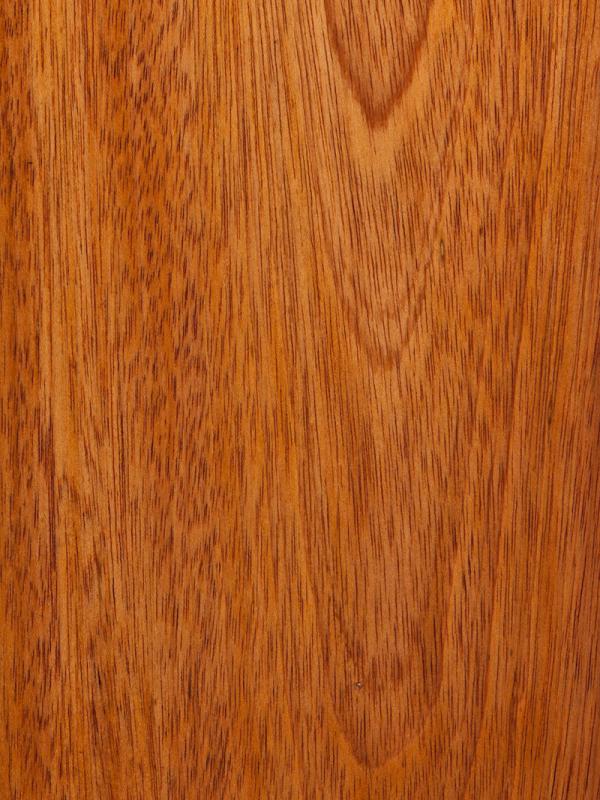
Family: Fabaceae or Leguminosae, the legume family.
Origin: West Indies, Mexico, Central America, Suriname, Guyana, Venezuela, Paraguay, Peru and Brazil.
Other common names: Brazilian cherry, Yatoba, Courbaril, Locust, West indian locust, Rode locust, Jutaby, Jut vermelho, Locust, Copal, Marble, Guapinal, Algarroba, Stinking toe, South american locust, jutahy.
The tree: Its average height is 130 ft. but it 100 to 150 ft. with a diameter of up to 6 ft. The bole is usually straight and without branches for the first 45 to 70 ft. then crowned with a spreading top of dense branches. The bark exudes an yellowish-orange resin known as South American copal which is used in varnishes and cements.
Appearance: The wide sapwood is white to gray and contrasts vividly from the dark streaked heartwood. The heartwood is red or orange brown when cut but darkens to a reddish-brown after exposure. The texture is medium to coarse and the grain is usually interlocking. It has a golden luster.
Density: Average reported specific gravity is 0.71 to .82(ovendry weight/green volume), equal to an air-dried weight of 56 to 66 pcf. Janka hardness is 2820 pounds of force.
Drying & shrinkage: Air drying should be done slowly. It handles well during seasoning with little warping or checking. Average reported shrinkage values (green to ovendry) are 4.5% radial, 8.5% tangential and 12.7% volumetric.
Working properties: Jatoba is relatively hard to work, having severe blunting effects on tools. It is good for turnery and has exceptional steam bending properties. It holds nails and screws well and glues satisfactorily. It finishes smoothly and has a natural luster and warm glow. Possible adverse reaction from the dust is a skin irritant.
Durability: Jatoba is rated as highly durable and is very resistant to brown and white rot fungi. The heartwood is also very resistant to dry wood termites but is susceptible to marine borers.
Uses: With its high density, Jatoba is ideal for demanding applications such as stair treads, tool handles, railroad ties, cogs and wheel rims. It is also used extensively in all kinds of construction like boat building and general carpentry. Because of its striking beauty, many woodworkers use it for fine turnings.
Availability: The supplies are somewhat limited in the U.S. on a commercial scale although wood collectors can usually find it in small quantities.